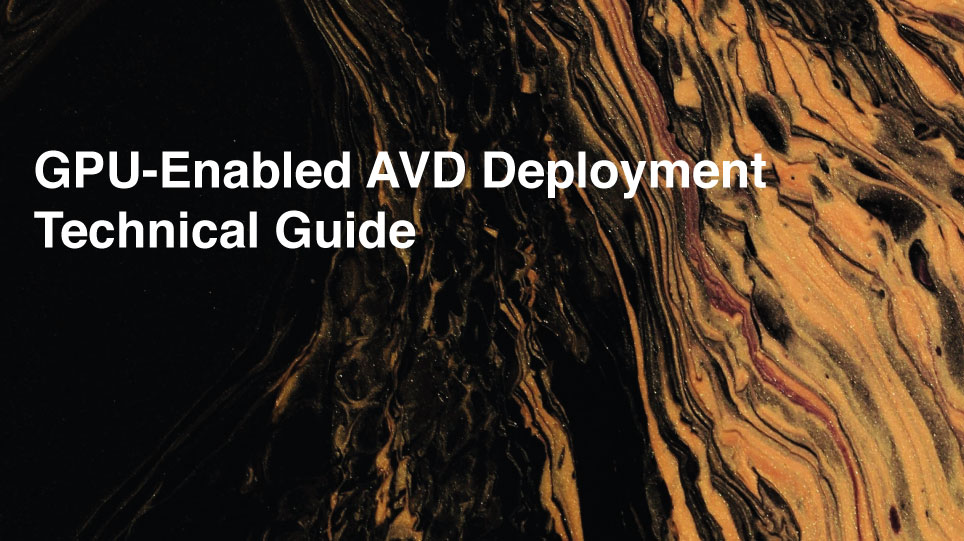This hands-on technical guide walks you through every stage of deploying GPU-enabled Azure Virtual Desktop environments — from image creation to policy enforcement — using Microsoft and Nerdio best practices.
Step 1: Provision Base VM for Image Creation
Deploy a GPU-enabled VM (e.g., NVads A10 v5) with Windows 11 Enterprise multi-session.
Apply all Windows updates and disable auto-restarts via GPO or registry.
Use a Dev/Test subscription for initial testing before capturing the image.
Step 2: Install NVIDIA GPU Driver via Extension
Navigate to the VM in Azure > Extensions + applications > + Add.
Select Publisher: Microsoft.HpcCompute and Extension: NvidiaGpuDriverWindows.
Verify driver installation using Device Manager under Display Adapters.
Step 3: Generalize and Capture Image
Run sysprep with:sysprep /generalize /oobe /shutdown
Then use Azure Portal 'Capture' to create a Shared Image Gallery version for reuse.
Step 4: Deploy AVD Host Pool Using GPU-Enabled Image
Deploy host pool from captured image.
Enable autoscaling for cost optimization via scaling plans or Nerdio autoscale.
Step 5: Configure Intune Policy for GPU Acceleration
Enable hardware graphics adapter for RDP
Set preferred codec to H.265 (HEVC)
Step 5.1: Configure GPU-Accelerated RDP Using PowerShell
New-ItemProperty -Path "HKLM:\SOFTWARE\Policies\Microsoft\Windows NT\Terminal Services" -Name "UseHardwareCompression" -PropertyType DWORD -Value 1 -Force
New-ItemProperty -Path "HKLM:\SOFTWARE\Policies\Microsoft\Windows NT\Terminal Services" -Name "VideoEncodePreferredCodec" -PropertyType DWORD -Value 2 -ForceStep 6: Validate GPU Acceleration
Use Task Manager > Performance tab to monitor GPU activity
Check RDP Connection Info (Ctrl+Alt+Insert > Connection Info) for AVC/H.265
Inspect Event Viewer > RDPCoreCDV logs (e.g., Event ID 170)
Step 7: Simplify and Standardize GPU Configuration with Nerdio
7.1 Built-In GPU Driver Deployment
Path: Host Pools > Manage Hosts > Properties > VM Deployment > Install GPU Drivers
🛡️ Prevent Compatibility Issues
⏱️ Increase Operational Efficiency
🔁 Maintain Consistency Across Hosts
7.2 Image Creation & Scripted Actions
Use Scripted Actions to apply HEVC codec settings, registry tweaks, and validations.
7.3 Visibility & Assurance
Activity Timeline for provisioning audits
Host Health Status checks
Azure Monitor alerts on GPU metrics
🔗 Reference Links
Click Here To Return To Blog
